Westworld Episode 4 Review: “Riddle of The Sphinx”

Westworld Episode 4 Review: “Riddle of The Sphinx”
Westworld’s viewership is slumping, but our hearts are pumping. How can you not love a show that brings you horrifying glimpses of technological immortality? Or a show that examines time as a data point, rather than a linear absolute.
This Deep Dive examines Season 2 Episode 4, “Riddle of the Sphinx,” and gets into the marrow of what Westworld is all about.
- What are the three times we see Bernard visit Lab 12?
- Who is the control unit for?
- How are Elsie’s clothes still clean?
- Why is the Man in Black changing so rapidly?
- Is Ford still running the show?
Get all caught up before we leave the friendly confines of Sweetwater and head toward Shogun World next week.
Take the plunge with us, then write in your thoughts at hosts@shatontv.com for Thursday’s listener mail Telegraph.
Westworld Episode 4 Summary:
“Riddle of the Sphinx” Bernard finds himself in a cave in an isolated section of Westworld. He discovers Elsie Hughes chained up inside, having abandoned her there while operating under Ford’s influence. They explore a hidden bunker in the cave and find an insane host of James Delos. A series of flashbacks reveal that William and James attempted to recreate James’ consciousness in a host body to achieve immortality. However, the experiment repeatedly failed and William shut it down. Bernard recalls that Ford had him retrieve the control unit of a second host-human hybrid, but cannot recall for whom it was intended. In the park, William and Lawrence return to Lawrence’s home to find it overrun by Craddock and the surviving Confederados. Craddock torments the other hosts for sport until William and Lawrence overpower the Confederados and kill Craddock. Speaking through Lawrence’s daughter, Ford warns William that one good deed does not redeem him. William rides west with the townspeople in tow where they meet Grace, who reveals herself to be William’s daughter Emily.
Subscribe Now
- Android: https://shatpod.com/tv/westworld-android
- Apple/iTunes: https://shatpod.com/tv/westworld-itunes
Help Support the Podcast
- Contact Us: https://www.shatpod.com/contact
- Commission Movie: https://www.shatpod.com/support
- Support with Paypal: https://www.shatpod.com/paypal
- Support With Venmo: https://www.shatpod.com/venmo
- Shop Merchandise: https://www.shatpod.com/shop
- Shop Amazon With Our Affiliate Link – https://www.amazon.com/?tag=shatmovies-20
- Theme Song – “The Ecstasy Of Gold” (Hip Hop Instrumental Version) by Dj 2 Bad
- Outro Music – By Simon Eric Haywood
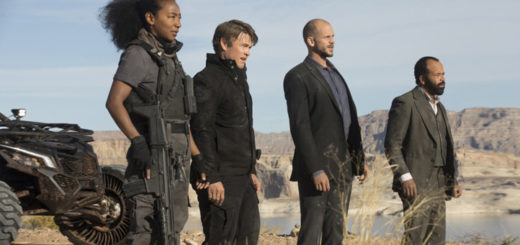
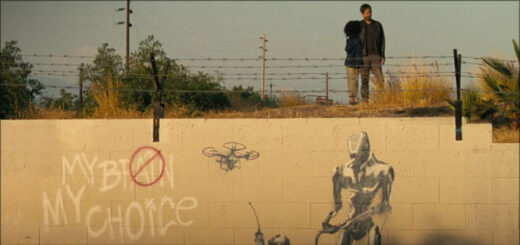
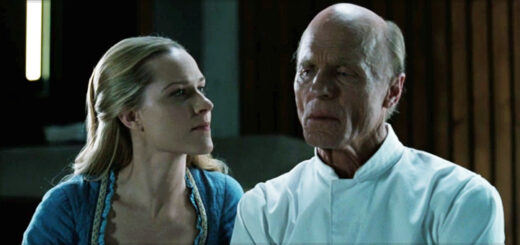
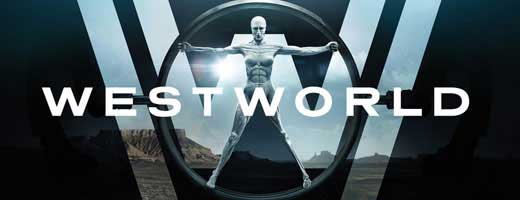
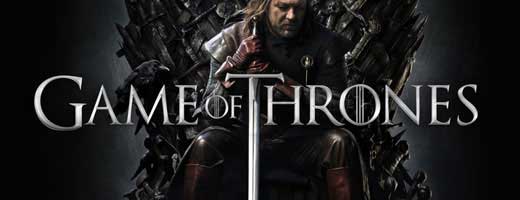
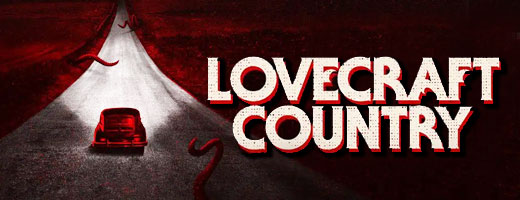
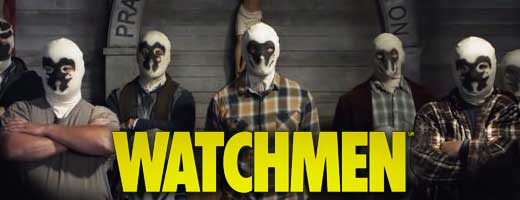
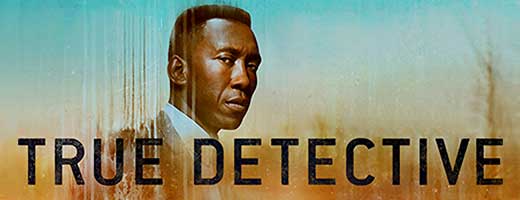
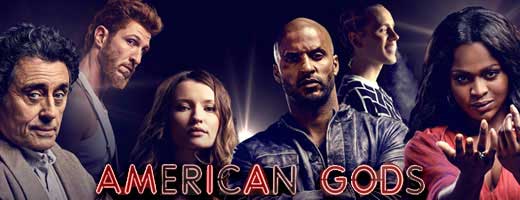
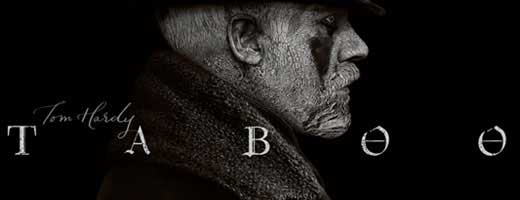
I’m convinced the control unit is Arnold. Jim Delos could not come to terms with his reality, I believe Ford realized that this issue could be overcome by melding a human consciousness to an already self-aware host (Bernard). My theory is that everything we have seen of Bernard this season has been him walking through his memories, trying to come to terms with his new host/human hybrid consciousness. The biggest evidence for this is in S2E1, when Bernard begins to break down and rapidly flips through different memories: one of those memories is him walking with Dolores, which we discover in E2 is not Bernard, but Arnold before the park opens. I don’t know how Ford would be able to recreate Arnolds mind, but we also don’t really know how Jims mind was recreated either.
Okay, guys. Here are my “tin foil” theories for your consideration:
First one: Ford transferred his consciousness into some part of the park’s network, not the one that is down, but another one that continues to run. That’s why can interact with William throughout the current narrative through the various hosts. Ford was able to achieve what was not possible for Jim Delos because trying to insert a person into a single host doesn’t work. Remember Bernard commenting that the Abernathy data was too large to be contained in a single host too and he is glitching out as well. The reason everyone is wonder how Ford could have anticipated all this is because he still exists, now in digital form.
Second one: The red chestnut that Bernard pocketed is for resurrecting Arnold. He is the only one that it makes sense to be. Ford knew that Arnold believed more in the hosts’ sentience more than he did and those that will eventually escape the part will need him (Arnold) to help them adjust to living in the world with humans. Bernard already knows how to communicate to hosts through the mesh network, even though the park network is down. William may have failed to deliver eternal life to his father-in-law, but Ford has seen it all, and only wants to deliver that in one person, his former partner. Likely, Ford-in-the-network will be destroyed at the end of this season, so his role going forward will be taken by the human-hybrid, Arnold.
You guys need to watch the 1st season of Altered Carbon a huge basis of the plot is people who live forever and never die and the ramifications when that happens.
Hey there,
I just re-watched this episode and I’m pretty sure the whole Teddy/Bernard body swap is no longer plausible. Once Bernard is back with Elsie and glitching out, Elsie removes his glasses from there he doesn’t put them back on. I think this is also showing us that Bernard is slowly accepting his new reality.
For me, “Riddle of The Sphinx” was the best Season Two episode thus far. I didn’t find the first three episodes of Season Two very engaging, and I was wondering if the show would recover or stay on the same somewhat languid trajectory it had been on. Though my interest has definitely been restoked after a long hiatus and a few so-so episodes to start Season Two, some of the reveals thus far (across both seasons) in Westworld feel like gimmes (e.g. William as the Man in Black), and “Grace” (as she was originally billed) turning out to be William’s daughter Emily was one such gimme. It was not difficult to make the connection. William and Emily have the same tenacity for survival, they have the mentality of hunters who understand that the trappings of both predator and prey can be deceptive. Both William and Emily tend to be more observant of the hosts’ narratives and patterned behaviors than other guests (undoubtedly, at least in part, due to the amount of time each has spent in the park). Neither appears to have much time for genuine connection with other human beings, and both use people to get what they want. William and Emily may even have some of the same jadedness with regard to the hosts as they existed prior to Ford’s death. She is definitely her father’s daughter, even if she hates him. I think they will eventually find closure with each other, in one form or another (e.g. either in bitterness or forgiveness), something James Delos likely never had with either Logan or Juliet. William probably had more closure with James than anyone, albeit it was the Ghost in the Shell version of James. Maybe William will prove his daughter right about him, that he’s a walking terror, or maybe he will manage to bring her around to seeing the complexity children rarely afford their parents.
I have several friends who are in, what I call, the cult of Ford (i.e. of the mindset that he was an unparalleled genius, and in his death he atoned and he has transcended making errors in judgment). I do not share this point of view. Ford was indeed a genius, but much of what Ford is given credit for rests on Arnold’s work. Furthermore, Ford was not an exceedingly ethical man. He seemed unconflicted when essentially pimping out hosts (who were arriving at the threshold of some semblance of self-awareness, though not yet self-determination or origination) to Logan when trying to secure capital investment. Though he has turned the tables on the established order (the order he helped establish), in some ways he remains very much the same. He also seems to have been completely unconcerned with which guests would be butchered. No rhyme or reason has been indicated with regard to who is spared and who is saved. Bloody chaos appears to be park-wide. While Westworld (and Shogun World, etc.) has been a theme park for the depraved, it also had a family-friendly side, as shown in the very first episode (“The Original”) with the family that encountered Dolores while she was painting. Whether guests are spared or saved may have nothing to do with their conduct in the park, and may rest solely on what hosts they encounter/avoid, and right now that seems more happenstance than well-controlled by digi-Ford. Also, Ford moralizing in this episode to William about one good deed not changing who William is rang rather hollow given some of Ford’s own past actions. And what is happening across the park seems more tied to Ford’s contempt for humanity than any concern or respect he has for the hosts. Arnold seemed genuinely concerned for the hosts, something even now Ford does not. With Delos seeking to terminate hosts, and given ongoing destruction of equipment in the park (as well as the unwillingness of some hosts to let other hosts live on), permadeath could be a real threat to hosts now (at least for those hosts not in power or not in the good graces of those in power). I doubt Delos is inclined to resurrect the hosts floating along shore (in the case of Teddy, not resurrecting him would be merciful for both Teddy and viewers) in what thus far appears to be the most recent timeline in “Journey Into Night”. If the threat of permadeath is real, then Ford needlessly making (and it truly was needless) El Lazo v2 and his men shoot themselves when William tried to coopt them takes on an extra level of harshness (as they will not have the opportunity to evolve). Even now, Ford is willing to deprive hosts of their own agency. If I am to believe that hosts can potentially transcend their programming as well as believe that their cognitive faculties and characteristics can potentially be inalienable, then Ford’s imposition on hosts now is an even worse transgression than his control of them when they were of a lesser evolutionary state.
I think William and Ford share disdain and some admiration for each other because they recognize some part of themselves in one another. Neither really planted the first seed of their empires (that would be Arnold and James Delos), and while both Ford and William have perhaps cultivated worlds beyond what Arnold or James Delos could have, these worlds bear an inherent corruption shrouded behind slick marketing façades (here, I am admittedly less harsh on William, as James and Logan Delos were no prizes, and were less capable of introspection, although I think young William, and even old William, fooled himself with some of his musings). I do think there is a greater chance to salvage something human (in a good sense) in William than there is in a disembodied Ford. For one, I get the impression that William/MiB on some level hates himself, and I never really had a solid feeling that Ford hated himself on any level. Both have a god complex (but neither has the wisdom to be a half-way decent god, although I will credit Ford with being a master manipulator), but William may be beginning to see that being a god (in the sense of being a titan of industry at the cost of neglecting his own humanity and family) isn’t all that it’s cracked up to be. William seems to be embracing his mortality, whether telling James Delos in “The Riddle of the Sphinx” that people aren’t meant to live forever and that the world may be better off without either of them, or telling Lawrence in “Reunion” that they’d all be dead soon enough. I may be way off base, but he seems to care about changing his daughter’s opinion of him. Had Ford not said in “The Original” that any disease can be cured at this point, I would question if William was terminally ill and was seeking to get his affairs in order. Hence this being his final ride. He said in “Chestnut” that he was never going back, and that was before the shit hit the fan, before the hosts could kill the guests. I believe it is his daughter’s poor opinion of who he has been in this world and how it has bled over into the hidden folds of his character in the outside world he wishes to appeal.
“They never saw anything like the man I am in here. But she knew anyway.” – William speaking of his daughter in “Trace Decay”
“And in the little time we have left, we’ve got a chance to see what we’re really made of, a glimpse of the men we could’ve been.” . . . “But I have received my judgment all the same, Lawrence. And I take issue with it. Because up until this point, the stakes in this place haven’t been real. So I’m gonna fight my way back and appeal the verdict. Then I’m gonna burn this whole fuckin’ thing to the ground.” – William in “Reunion”
William/MiB is as big an SOB as ever. Believing that the stakes are finally real for guests and hosts alike, he is still willing to terminate hosts (including the young Ford host, but again, he disdains Ford even though I think he also admires Ford to some degree). But whereas in Season One he was willing to kill Lawrence’s wife as he knew she would be resurrected as if nothing happened, this time, with there being real stakes, he showed mercy to Lawrence’s family. It doesn’t hurt that this came after Lawrence said with regard to his family, “Truth is, I’m a son of a bitch. Kindest thing I ever did was to keep away.” This is something William could relate to. Yes, he told Ford he was playing the game to the bone, and acted as if it wasn’t done as a good deed even in the least little bit. But if you watch Ed Harris’s face while Craddock tormented the bartender, William (as portrayed by Ed Harris) does seem bothered by it, and even recoiled when the bartender’s hand was blown off. When Craddock handed Lawrence’s wife a shot glass full of nitroglycerin, once again, William looked bothered by it. Ed Harris should have received different direction if he was supposed to convey that William didn’t care or felt that Craddock was wasting William’s time. Does William’s liberation of Lawrence’s family and the townspeople excuse what William did to Maeve and her daughter, or excuse the dissection of countless Confederados, or excuse the bone-deep scalping of Kissy, or excuse killing the bartender in Las Mudas (the same bartender Craddock later blew the arm off of), or excuse killing Lawrence’s wife right after dancing with her (just as Craddock danced with her), and excuse later killing Lawrence for his blood when pursuing the center of the maze, etc.? No, but William has been struggling with the nature of the park and its hosts since pretty much his first day there, and I believe a lot of what he has done has been part of his search to understand if any of it is real on some level, or if it’s just a theme park for people’s proclivities, and if it has all been without inherent consequence (until now). The hosts being reset and returned to their endless loops has probably contributed to his jaded view until Ford’s death. Additionally, I think he may have used the park in part to test himself to see if he could act contrary to his perceived gut reflex (or, if like the hosts, he was chained to a behavior pattern). Also, a good chunk of the fallout in his mindset is from his deluded romance with Dolores (he was going to grow old and die and she was a machine denied self-determination; that combination was a road to nowhere). The scene with Dolores in “Reunion”, where William said she really is “just a thing” and that it wasn’t about her at all comes off as him trying convince himself of his own words as well as vindictively hurt Dolores for not remembering him, a behavior on his part which was a further exercise in futility. He even had her stripped of clothing as the Westworld employees did (but Arnold didn’t), I think in attempt to see her as a product and deprive her of personhood. I think even then he was struggling with his perception and was doing what he could to objectify her in the truest sense of the word, to change her from a “her” in his eyes to an “it”. But it was clear in an earlier scene when Dolores was playing piano at James Delos’s retirement party that William still harbored some feeling for her. He eventually came to the realization that the guests were as much replaceable cogs in the narratives as the hosts. The connection he had with Dolores could potentially be, more or less, replicated by the next guest to stop and pick up her can. A park which seeks to make every guest a centrally important character, by its very nature, results in an environment where no one and no experience is important.
I find it interesting that elevated hosts like Dyatt (Dolores + Wyatt) should know better than anyone that the hosts’ natures have been programmed [for example, Rebus went from being a one-dimensional villain to being a one-dimensional do-gooder after Bernard altered his attribute matrix in “Virtù e Fortuna” (which thankfully made sense of Rebus’s clownish gallantry on the beach in “Journey Into Night”)]. Yet rather than have hosts she deemed as narratively ill-suited for her cause reprogrammed in accordance with her vision (e.g. if Craddock went from one-time partygoer to Confederado, there’s no reason he couldn’t have been reprogrammed yet again), Dyatt prefers to terminate these hosts. Not reprogramming them isn’t respecting their agency either, as they are still subject to previous programming meant to fulfill narratives. This is the fundamental problem with all the hosts. How do you free them of the fabricated identities given them by their human creators without rendering them inoperable blank slates? But how can they truly be their own selves while living within the identities given to them by their human creators? While human beings are subject to (sometimes overbearing) influences that shape their personalities, the personalities of the hosts were assigned. It’s not even close to being the same thing in terms of self-determination. The hosts aren’t truly their own selves, even now. They make decisions free of explicit human direction, but those decisions are based on characteristics programmed by humans (such as self-preservation or selflessness, empathy or sadistic urges). Even when Maeve had Felix alter her attribute matrix in Season One, she did so at the behest of her programming, so it wasn’t really her agency at work any more than a marionette controls its own movements. That is probably my biggest gripe with the show is that it doesn’t do a great job tackling this. Often being human is about overcoming one’s inclinations, not embracing them. E.g. to overcome fear and find bravery on the other side, not to be brave because someone ramped up your bravery setting in your attribute matrix. People may point to Maeve disembarking from the train in “The Bicameral Mind” as her overcoming her programming, but she did leave the train because she didn’t want to fulfill her mainland infiltration narrative or because the sight of the mother and daughter on the train provoked another code path still existent in her, that of the loving and protective mother? What if Maeve had been programmed as an abusive or neglectful mother? Would she still have disembarked the train at the sight of the mother and daughter?
What is the nature of the Lakota hosts? It has already been established that Maeve is unable to control them (evidenced in “Virtù e Fortuna”). They could possibly be agents of Ford, but Dyatt is shown executing a Lakota host in “Journey into Night”, and it was Ford who set Dyatt loose upon the park in the first place.
Also, to backtrack to “Journey Into Night”, it still hasn’t been sufficiently explained why there is maze printed on the inside of the hosts’ skulls. Arnold created the maze, and if he had the design added to the hosts’ construction, someone should have noticed it in the intervening years since his death. And if it was Ford who added it, what would be his purpose in doing so? Though he repurposed the maze, it wasn’t personally relevant to him the same way it was to Arnold. Maybe an explanation was provided, and I’ve forgotten it.
Which human did Ford have Bernard print a control unit of? My working assumption is that the purpose of copying a human mind onto a control unit is to attempt to preserve the integrity of the human mind which has been copied, not to undermine its integrity for the purpose of control. The latter would be a lot of trouble to go to when Ford can already create hosts which look like and mimic humans. And as Ford stated in “Dissonance Theory”, “We know everything about our guests, don’t we?” If he needed to, I’m sure he could create a likeness of a guest or other human which would be passable in the outside world, so the added work of copying their mind seems unneeded. But I suppose if a host simply could not pass and there was no other way to attain information, then a control unit might be useful in that circumstance (unless the person in question is William who engages in the trope of villainous monologuing to Dolores about his splendorous secret plan, and thus has no secret).
So who could it be? In no particular order…
• Ford, to accompany a new body. Not impossible, but I doubt this. It is too simplistic, and Ford already has the ability to express himself through seemingly any host. Ford’s mind has already been preserved, as it is networked throughout the park. Why would he require a recreation of his body when he already has a legion of host bodies he can control?
• Arnold, to accompany a new body. Perhaps Ford wishes to atone for bringing the money men in, which set the company in a direction which ultimately led to Arnold’s protest by way of his death. I doubt this very much. Bernard is already a close, if not near exact, approximation of Arnold. Also, a complete copy of Arnold’s mind would have to have been made before the structural integrity of his cranium was breached.
• Charlie, if Ford wanted to present Bernard with a gift (similar to the copies of Ford’s family Arnold gave Ford). I doubt this. Charlie’s brain may not have been copied or otherwise preserved, and Charlie is Arnold’s son, not Bernard’s. If Ford wished to give Bernard a son, he would be better off creating an approximation of Charlie that matched the version in Bernard’s backstory (even if this backstory is based on a digital copy of some of Arnold’s memories), just as Bernard is an approximation of Arnold, not an exact copy of Arnold. Ford has also eschewed sentimentality in the past, so this seems unlikely.
• William or a member of his family. I have a number of theories about motives and ways this could work itself out. If it were William, I suspect it would be young William (Jimmi Simpson). This is the direction I’m leaning at the moment.
• Elsie, if Elsie actually died last season. Elsie is a resource, but I can’t think of a meaningful reason for this twist. It seems highly unlikely.
• Theresa. This would be less purposeful or reasonable than preserving Elsie. I think Ford was content to see Theresa dead.
• Stubbs, if Stubbs actually died last season. Stubbs isn’t relevant enough to the grand game for this, and a twist like this would be a monumental let down.
• Someone else?
I liked James Delos’s line, “They said there were two fathers. One above, one below. They lied. There was only ever the devil. And when you look up from the bottom, it was just his reflection laughing back down at you.” Perhaps hope will spring up from the fields of blood, but there isn’t much of a dichotomy of good and evil right now, no benevolent overseer, just a lot of butchery by all parties.
I would like to know what was in Emily’s notebook shown during the Seven Nation Army scene at the beginning of “Virtù e Fortuna”.
Dolores line, “To grow, we all need to suffer” from next week’s “Akane No Mai” sounds very similar to William’s notion “…when you’re suffering, that’s when you’re most real” comment to Lawrence in “Chestnut”.
And I still question this bit from Ford and William’s conversation in “Contrapasso”:
William: “You know, I always felt this place was missing a real villain. Hence my humble contribution.”
Ford: “I admit, I lack the imagination to even conceive of someone like you. The urgency, however, doesn’t quite fit the character. It betrays a certain anxiety.”
I just watched the “Truman Show” with Jim Carrey and I saw the link between the “artificial” that people are willing to accept and the “realness” that people are willing to reject. In society, we all accept this artificialness of everyday life; from phony smile to phony laughs to phony personalities. Now combine that with the human having “control” and “superiority” complexes and you have Westworld. Ford always knew that the link between the accepted “reality” and the given “reality” of life; and there being a thin line, even for robots that have an underlining and/or latent consciousness. With him knowing this, Ford and the “man in black” ran trials with delos in order to see if a full consciousness could be implemented into a robot. This also fits into the “Matrix” plot and how machines realize that humans are in control and they calculated that they can do it better.
Also, at the end of the episode “Riddle of the Sphinx” they walk into the area where delos is and I see a picture in a frame on the floor that looks a lot like the woman that was killed by Benard. Who was she related to within the whole plot?
There was a picture of Theresa Cullen in the room? I thought it was a photo of Mrs. Delos.
Also want to comment on everyone’s question about William’s change. He may be a host now. I actually like that idea. But maybe a simpler explanation is this. William was a basically good person in the beginning. Being involved with corruption and corporate intrigue and James Delos as a family member, (and the disappointment of his love for Delores being a world changer for him) embittered him. He changed. He became the man in black. And he didn’t like playing pretend in the park, he wanted reality. He was angry. So when the hosts rebelled, everything changed. Maybe they were still machines. But now they had choices. Now there were consequences. So William wasn’t playing a dumb game anymore, and his old, basically decent, human persona kicked in, and started thinking. Maybe not even consciously. Hosts can die now. They can make good and bad choices now. Human or host, they can choose. So William, without even realizing it, has started to feel humanity, empathy, maybe towards beings who for the first time can CHOOSE.